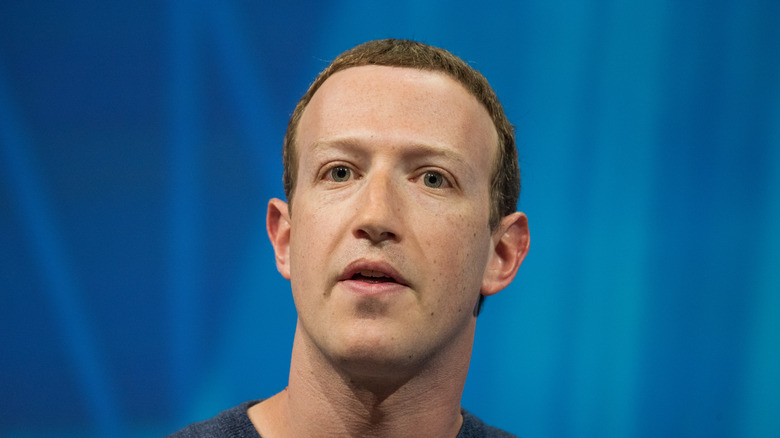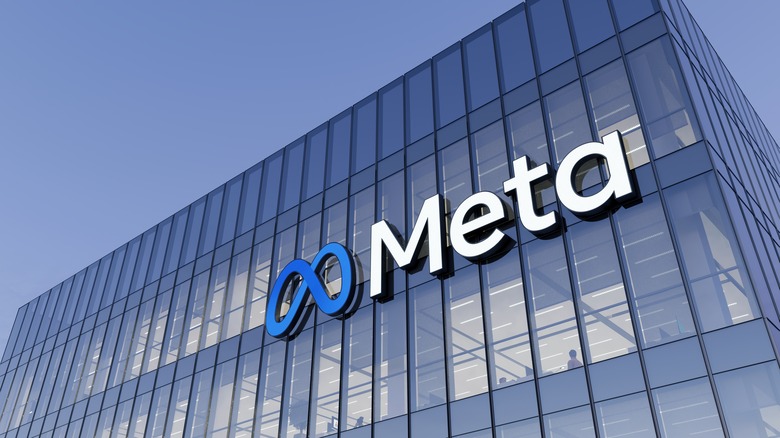Meta Layoffs Dwarf Elon's Twitter Woes As Metaverse Skepticism Grows
While a lot of the focus has been on Elon Musk's acquisition of Twitter, his plans for Twitter Blue, and his axing of large numbers of the company's staff, there are other things going on in Silicon Valley. While Musk can argue a good portion of Twitter's layoffs would have happened anyway, other tech companies are also undergoing a restructuring as stock prices tumble. Meta, which was formerly known as Facebook, is one of them with thousands of staff being shown the door in a bid to cut costs and increase efficiency.
Last week, Twitter laid off around 50% of its workforce. Musk said the layoffs were necessary to help turn the company's fortunes around and make it profitable. Former CEO Jack Dorsey also took some responsibility for the mass firings, claiming that he "grew the company size too quickly," and apologizing to the former employees. The layoffs didn't come out of nowhere, either; rumors that Musk intended to lay off an even greater number of employees — up to 75% — had circulated for weeks.
The billionaire ended up retaining more staff than that and has allegedly attempted to bring some of the staff that was laid off back. Reports indicate that some of the staff Twitter let go were important if Musk wants his planned features, like the new Twitter Blue plan, implemented quickly. Others who were fired apparently had essential roles in maintaining the platform's core functions. Meta's layoffs have also been rumored for a while, but there is a chance Meta's managers put more thought into who they were releasing and who would be retained than Twitter did.
Zuckerberg is doubling down on his Metaverse gamble
Meta's troubles arguably started when Mark Zuckerberg decided to heavily invest in the "Metaverse," which is his idea of how the internet will look in the future. The Metaverse is centered around VR, and if the Facebook founder's plans are realized, people will use it to work, socialize, and play. However, Reality Labs — which is the department of Meta that is developing the "Metaverse" — is losing billions of dollars each year. There's also a suggestion that Zuckerberg is pulling resources and staff from Meta's more profitable departments and focusing them on his Metaverse project.
While it's fairly obvious that Zuckerberg believes the Metaverse is the future, not everyone is as enthusiastic. Facebook shares have tanked over the past year, with many highlighting Zuckerberg's Metaverse push as one of the key factors causing investors to shy away. Even Meta's staff doesn't seem too keen on the idea of working in the Metaverse. Reports recently emerged that managers were being forced to conduct meetings in Horizon Workrooms, Meta's main VR work app.
However, many of the staff being asked to attend these meetings didn't even own one of the company's popular Quest 2 headsets, and some that did reportedly hadn't bothered taking the head-mounted displays out of the box. Despite the skepticism, it is easy to see Zuckerberg's point. If the Metaverse really is the future, he's aiming to make his company the main player. If Meta were to get a cut of most of the transactions that are made in the future digital universe, it would be one of the greatest business moves in history. Unfortunately for Zuckerberg, there's also a possibility his company may not manage to keep pace with his plans.
Meta has axed more staff than Twitter even had
Today, Mark Zuckerberg announced that Meta will be parting ways with 11,000 of its employees. This means around 13% of the company's staff will be out of a job, and in raw numbers Meta has fired thousands more staff than Twitter even employed. In a statement announcing the layoffs, Zuckerberg said: "Today I'm sharing some of the most difficult changes we've made in Meta's history. I've decided to reduce the size of our team by about 13% and let more than 11,000 of our talented employees go. We are also taking a number of additional steps to become a leaner and more efficient company by cutting discretionary spending and extending our hiring freeze through Q1." The layoffs are even worse than expected, with most outlets predicting roughly 10% of the company's staff would be terminated. Facebook might not be calling any of those staff members back either, as its hiring freeze is being extended alongside the cuts.
As for why the cuts happened, Zuckerberg says he over invested following the e-commerce surge at the start of the coronavirus pandemic. Zuckerberg, like many others, had predicted the boosts in revenue would stick around even after the pandemic ended and expanded his company as a result. He was wrong, and now the company has to adjust. It's too early to tell if the cuts will be enough to steady the ship at Meta and restore the confidence of shareholders. As with Twitter, it's difficult to say where things will go in the next few months. Meta isn't facing the same problems as Musk's new platform, but both social networks do have a well-known CEO with a very specific vision and a difficult path ahead.
The staff aren't leaving with nothing
Meta's now former United States-based employees will receive 16 weeks of pay, plus an additional two weeks for every year they've been with the company. The total amount isn't capped, and this is also a larger severance package than Musk offered fired Twitter staff. It's also more than enough to avoid triggering California's WARN law, which requires employers to give 60 days of notice to employees who are being laid off as part of a mass firing. Employees who are affected by the cuts will also receive cash equivalent to their remaining paid time off, six months of health insurance coverage, and the stock vesting they were due to receive on November 15.
Zuckerberg has also pledged to provide ongoing support to the exiting employees. This includes three months of "career support" which includes "early access to unpublished job leads." Meta's staff who are in the U.S. or other countries on an immigrant visa will also receive help, as their immigration status could be affected by the cuts. Staff who have lost their jobs outside the U.S. will receive a similar level of support, with details being confirmed later. It is also worth noting Zuckerberg has been the face of the cuts all along, personally addressing employees during a meeting yesterday and plastering his name on the announcement. This contrasts with Musk's Twitter layoffs, as reports stated the new CEO and his team were essentially unreachable, and the billionaire didn't attach his name to the email fired staff received.



